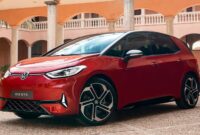In the ever-evolving landscape of the automotive industry, the shift towards electric mobility seems undeniable. As manufacturers scramble to adapt to the changing times, BMW stands out with its resolute commitment to the continued development of combustion engines. Despite the global trend towards electrification, the Bavarian company has refrained from setting a cutoff date for its beloved internal combustion engines.
Reports from earlier this year confirmed that BMW is diligently working on a new generation of gasoline and diesel engines, spanning four, six, and eight cylinders. These mills, according to the available information, are expected to remain in production well into the next decade, primarily finding their home in the automaker’s SUV lineup.
While rival brands like Audi and Mercedes-Benz have announced ambitious timelines for transitioning to EV-only lineups, BMW is charting a different course. Speaking to CarExpert, Frank Weber, a member of the board of management for BMW Group development, has made it clear that BMW will not announce an end date for its combustion engines. Weber expressed that BMW envisions a future where combustion engines coexist harmoniously with electrified offerings, providing customers with a seamless choice between ICE and BEV powertrains for the next 10-15 years.
“What you see today is how we master the powertrain flexibility as part of our strategy… people don’t have to make powertrain choices and then with it, make vehicle choices. They just say; ‘I take whatever my preference is’ and still get a 5 Series. It’s a true advantage for us,” Webber explained to the online publication.

13 Photos
The decision by BMW not to set a cutoff date for combustion engines stands in contrast to the industry’s prevailing trend. Mercedes-Benz declared its intention to become electric-only by 2030, contingent on market conditions. Audi, on the other hand, plans to phase out combustion-engined models by 2033, with some flexibility based on customer demand and regulatory considerations.
In addition to its dedication to traditional combustion engines, BMW is also fervently pursuing an electrification strategy. The company has set a goal to have at least 50 percent of its sales generated from battery-powered electric vehicles by the end of the decade. This dual approach aims to cater to a broader spectrum of consumers, allowing them to choose the powertrain that best suits their needs without compromising on their preferred vehicle models.



